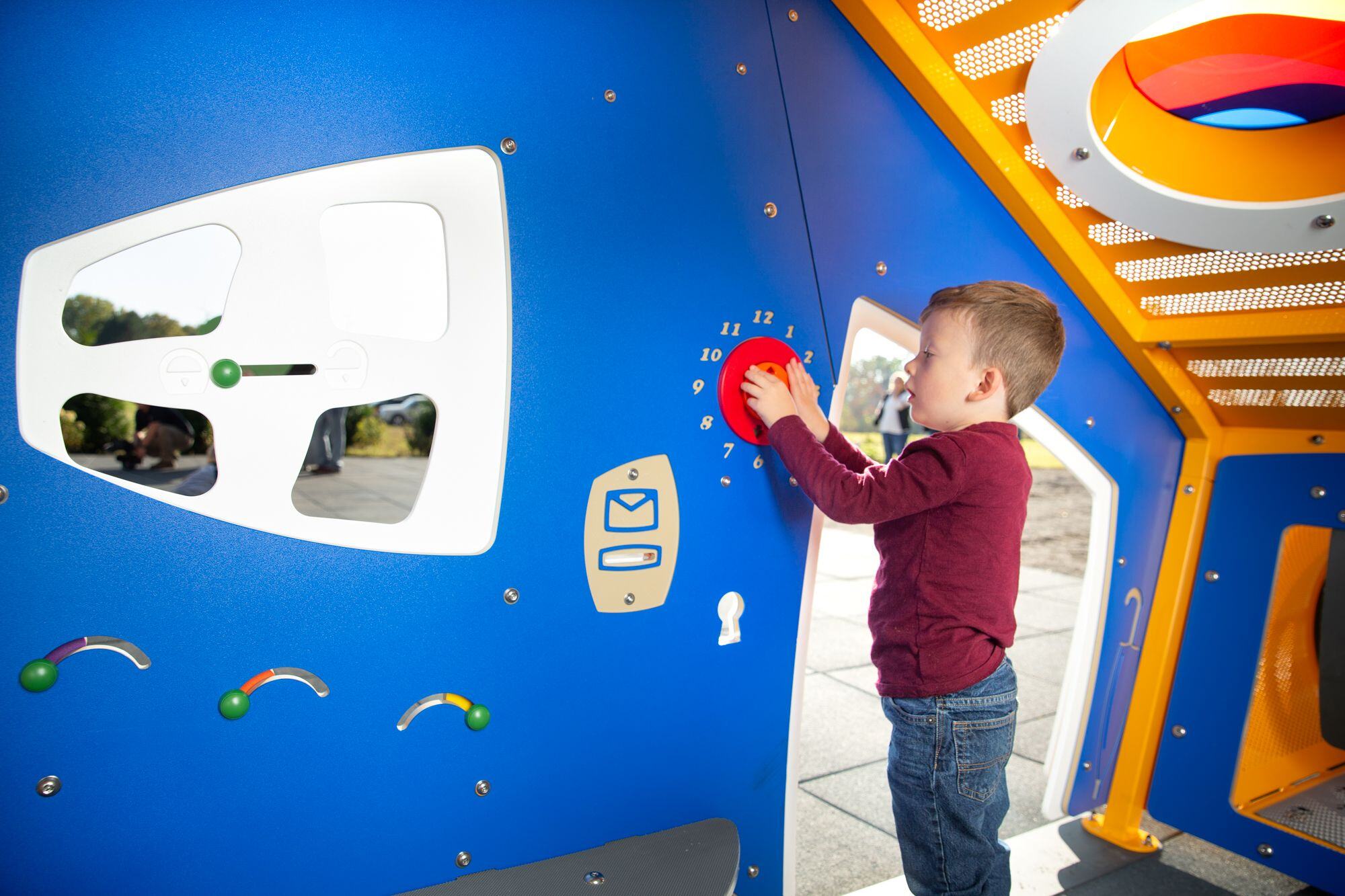As parents and caregivers, we want to ensure that children are given every opportunity to thrive, both physically and mentally. One of the most effective and enjoyable ways to support early childhood brain development is through interactive play.
At Churchich Recreation, we understand the importance of play in nurturing creativity, cognitive growth, and social skills. Let’s explore how interactive play contributes to a child’s brain development and why it’s essential for their overall growth.
What is Interactive Play?
Interactive play refers to activities that involve active engagement with others or with toys, equipment, or the environment. This type of play allows children to use their imagination, explore, problem-solve, and communicate with others. It can range from playing on a playground with peers to engaging in creative storytelling or building something with blocks. The key is that it involves back-and-forth communication and active participation, whether with other children, adults, or play structures.
How Interactive Play Stimulates Brain Development
During the early years of life, a child’s brain is developing at an extraordinary pace. Playtime is much more than just fun—it’s a critical part of how children learn to understand the world around them. Here are several ways that interactive play helps stimulate brain development:
1. Cognitive Development
Interactive play encourages children to think, solve problems, and make decisions. For example, when children engage in building blocks or play on equipment like climbing structures, they learn to assess situations, create solutions, and adapt to challenges. This problem-solving ability is essential for cognitive development, as it strengthens neural connections in areas of the brain responsible for thinking and reasoning.
- Memory and Attention: Games like puzzles, memory games, or even navigating a playground structure improve a child’s focus and memory retention.
- Language Development: Interactive play often involves verbal communication, which enhances language skills and vocabulary as children talk through their thoughts, ask questions, and listen to others.
2. Social and Emotional Skills
Interactive play, especially when done with peers, teaches children essential social skills such as taking turns, sharing, and cooperating with others. Playing with others also gives children the chance to understand emotions—both their own and those of others.
- Empathy and Teamwork: When children play games that require cooperation, they learn to understand different perspectives and the value of teamwork. These skills are crucial in developing empathy and emotional intelligence.
- Conflict Resolution: Through play, children learn how to resolve disagreements in a constructive way, helping them develop important life skills for managing emotions and social interactions.
3. Motor Skills Development
Physical play that involves running, jumping, climbing, or balancing on playground equipment significantly contributes to a child's motor skill development. Interactive play environments, like those offered by Churchich Recreation, are designed to encourage physical activity and enhance a child’s coordination, balance, and strength.
- Fine Motor Skills: Activities like playing with sand, water, or manipulatives help children develop fine motor skills, which are necessary for tasks like writing, drawing, and using tools.
- Gross Motor Skills: Climbing, swinging, and jumping on playground structures help children build gross motor skills, improving their overall physical health and coordination.
4. Creative Thinking and Imagination
Interactive play fosters creativity and imagination, which are essential for brain development. Whether they’re pretending to be explorers on a playground, designing an imaginary world, or creating stories with friends, children learn to think outside the box.
- Role-playing: Playgrounds with themed elements encourage role-playing, which helps children develop creative thinking and storytelling skills.
- Problem-solving in Imaginative Settings: When children are free to imagine scenarios during play, they create unique ways to approach problems, leading to innovative thinking and creative solutions.
The Role of Playgrounds in Brain Development
Playgrounds are more than just fun spaces for children to run around; they are critical environments for interactive play that promotes brain development. At Churchich Recreation, we design playgrounds with a variety of play options that challenge and engage children in different ways. Here’s how playgrounds specifically support brain development:
- Open-ended Play: Playground equipment encourages open-ended play, where there is no right or wrong way to engage with the equipment. This fosters creativity and decision-making as children explore different possibilities.
- Physical Challenges: Playgrounds offer challenges that encourage children to push their limits, such as climbing, balancing, and jumping. These activities improve motor skills while teaching persistence and resilience.
- Social Interaction: Playgrounds are communal spaces where children naturally interact with others. These interactions help children build friendships, develop social skills, and learn to work in teams.
- Sensory Experiences: Some playgrounds incorporate sensory elements like water, sand, or textured surfaces, which provide sensory stimulation important for brain development.
The Benefits of Interactive Play for Lifelong Learning
The benefits of interactive play go far beyond early childhood. The skills and cognitive abilities children develop through play form the foundation for lifelong learning and success. Children who engage in regular, interactive play are more likely to:
- Perform better academically due to enhanced memory, language skills, and problem-solving abilities.
- Develop strong social skills and emotional intelligence, which are critical for forming relationships and navigating social environments.
- Show greater physical health and agility as they grow, thanks to the development of strong motor skills.
- Exhibit creativity and critical thinking, essential for future challenges in both personal and professional life.
Interactive play is essential to a child’s brain development, and providing opportunities for this type of play is key to their overall growth. At Churchich Recreation, we’re dedicated to creating environments that foster both physical and cognitive development through innovative playground designs. By encouraging children to engage in active, interactive play, we help nurture the skills and abilities that will serve them for a lifetime.
If you’re looking to create a space that promotes healthy, brain-boosting play, contact Churchich Recreation today to learn more about our playground solutions and how they can support the development of children in your community.
